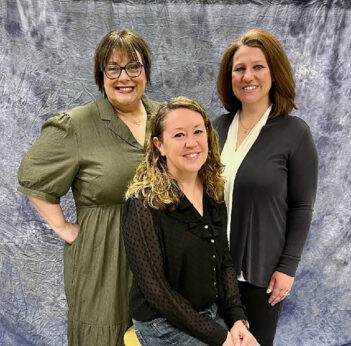Mental health is a subject that can be difficult to talk about openly, even when it’s an important conversation to have. A program at Orchard Park Presbyterian Church aims to initiate dialogue about mental health and erase some of the stigma attached to it.

The church, 1605 E. 106th St. in Carmel, will host Building a Mental Health Community from 8:30 a.m. to noon May 20 as part of Mental Health Awareness Month. The workshop is free and open to the public, though participants must register by May 18 at orchardpark.org. Designed for youth leaders, volunteers and parents, the program will address suicide awareness and the importance of self-care and offer an optional presentation on the intersection of faith and mental health.
“We just felt the need to address mental health,” Rev. Trish Lisa said, noting the importance of having such “hard conversations” that are frequently shied away from by youth, their parents and church leaders. “We want to build community in conversation about mental health.”
A committee of Lisa; Kristie Watts, a licensed marriage and family therapist who has a private practice at the church; and Kristin Lehr, OPPC’s youth director, recognized the need and that the church had Watts on hand and the space to host mental health workshops.
Addressing mental health has become especially important because of the COVID-19 pandemic, said Watts, who will deliver the keynote address at the May 20 workshop. The OPPC congregation is acutely aware of the effect the pandemic has had. Of 30 members of the church’s youth group, six lost parents during the pandemic, Lisa said. Social protocols in place because of the pandemic shaped the grief process and some of the circumstances surrounding those deaths, Watts said.
Watts said that according to the World Health Organization, the latest Global Burden of Disease study shows that the mental health of young people has been most affected by the COVID-19 pandemic and that they are disproportionately at risk of suicidal and self-harming behaviors.
“Discussing the changes and challenges of the past three years, as well as educating and addressing how to effectively manage and change the negative mental health side effects of the pandemic, is important,” Watts said.
Faith is important in addressing mental health issues, Watts said, because it “gives us something bigger than ourselves to rely upon for changes and wholeness.” Research suggests that religiosity reduces suicide rates, alcoholism, drug use, anxiety and depression, she said.
“Faith congregations offer community, a sense of belonging and hope — all of which positively affect mental health,” Watts said.
The Building a Mental Health Community workshop is part of a series that will include three or four events this year. The topic for a workshop in September is anxiety.
“We need congregations to step up and deal with mental health issues,” Lisa said. “We would like to be a resource for mental health in our community.”



